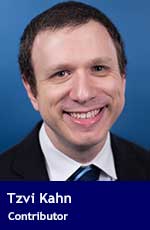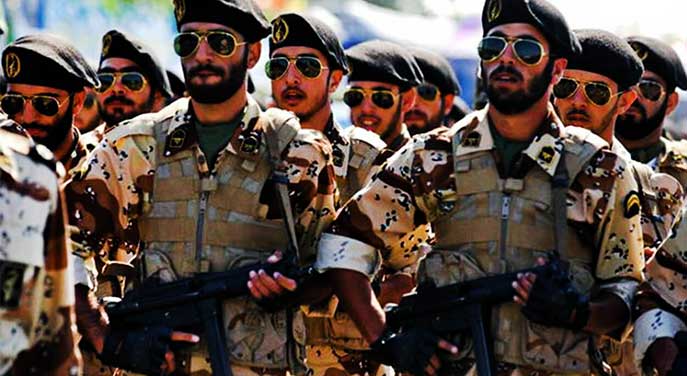 The United States remains on the verge of making a dangerous concession to Iran. And Canada seems prepared to double down on a policy that echoes it.
The United States remains on the verge of making a dangerous concession to Iran. And Canada seems prepared to double down on a policy that echoes it.
Washington may soon delist Iran’s Islamic Revolutionary Guard Corps (IRGC), the paramilitary force responsible for advancing Tehran’s radical Islamist ideology, as a foreign terrorist organization. This capitulation – part of a U.S. bid to revive the 2015 nuclear deal, formally known as the Joint Comprehensive Plan of Action – would fuel the IRGC’s domestic repression and regional aggression for years to come.
But Ottawa has yet to sanction the IRGC. In 2012, Canada did sanction the Quds Force, the IRGC’s foreign operations arm, which provides military and economic support to Iran’s proxies in Syria, Lebanon, Iraq, Yemen, and elsewhere in the region. Since then, however, Prime Minister Justin Trudeau has steadfastly ignored repeated calls by Canadian parliamentarians – including a 2018 resolution that passed the House of Commons overwhelmingly – to designate the IRGC in its entirety.
Even after the IRGC’s Aerospace Force downed a Ukrainian airliner in early 2020, killing all 176 people on board, including dozens of Canadians, Trudeau failed to impose meaningful consequences on Tehran. Though Iran described the incident as an accident, an Ontario judge ruled last year that the shootdown was “intentional” and an “act of terrorism.”
Ottawa’s position may reflect a perceived bifurcation of the IRGC’s foreign and domestic policies. According to this line of thinking, the Quds Force constitutes an entity distinct from the broader IRGC’s operational command, thereby obliging Ottawa to regard them as independent political actors. In this view, Canadian policy-makers can address the IRGC’s two missions separately.
But this approach is an illusion. In fact, the IRGC as a whole operates under the control of one man: Iran’s supreme leader, Ayatollah Ali Khamenei. And for him, the IRGC – as the Islamic Republic’s 1979 constitution stipulates – has one overarching objective: “fulfilling the ideological mission of jihad in God’s way; that is, extending the sovereignty of God’s law throughout the world.”
In other words, the IRGC seeks to export the same Islamist creed that it enforces at home. The IRGC’s various branches facilitate this goal. For example, as Jason M. Brodsky of United Against Nuclear Iran, a U.S. advocacy group, notes in a recent op-ed, the IRGC’s Basij militia and Ground Force have assisted the Quds Force in Syria, where Tehran seeks to preserve Bashar al-Assad’s regime. Meanwhile, the IRGC’s Intelligence Organization monitors and represses domestic dissent.
Ultimately, Tehran’s worldview conflates politics and religion, regarding the state as the key instrument for discharging the divine will. As Ayatollah Ruhollah Khomeini, the Islamic Republic’s founding father and first supreme leader, put it in his 1970 treatise Islamic Government, “Any person who claims that the formation of an Islamic government is not necessary implicitly denies the necessity for the implementation of Islamic law, the universality and comprehensiveness of that law, and the eternal validity of the faith itself.”
Ottawa and Washington seem unable to grasp this fundamental reality, clinging to the hope that they can reason with the regime or intimidate it with tough rhetoric. But the Islamic Republic will not renounce its raison d’être. Only a U.S.-led maximum pressure campaign — drawing on all instruments of Western power, be they military, economic, or diplomatic — stands a chance of changing the regime’s behaviour.
The Trudeau government should set an example by designating the IRGC in its entirety as a terrorist organization. And Trudeau should publicly urge the United States to resist Iran’s demands. Even if Washington fails to heed him, Trudeau’s position would help further delegitimize an organization that has claimed the lives of innocent Canadians.
Perhaps more notably, Canada’s designation of the IRGC as a terrorist group would serve as an act of justice that the families of the IRGC’s Canadian victims have long demanded. For their sake, if no one else’s, Ottawa should finally call the IRGC what it really is.
Tzvi Kahn is a Research Fellow at the Foundation for Defense of Democracies (FDD) in Washington, DC.
Tzvi is a Troy Media Thought Leader. For interview requests, click here.
The opinions expressed by our columnists and contributors are theirs alone and do not inherently or expressly reflect the views of our publication.
© Troy Media
Troy Media is an editorial content provider to media outlets and its own hosted community news outlets across Canada.
